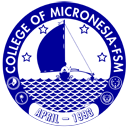Purposeful Dialogue: Take Responsibility and Ownership for What You Communicate
A Story
[Note: The full document Strengthening Purposeful Dialogue: A Handbook Of Guiding Principles, Protocols, and Strategies is available for download.]
Who Wrote That and When?
Two staff members were searching for the most current version of a policy regarding a human resources matter. Each found a paper copy of such a policy. Neither version of the policy had a listed author or an approval date on it. The two versions seemed to contradict one another in several important respects. Each employee was convinced that her version of the policy was correct, so they took the versions to a supervisor to settle the matter. At that point the supervisor produced a third version of the policy. This version had a date on it, but was twelve years old.
Since so much uncertainty existed about which version of the policy was current, the individuals spent roughly three days of work time searching paper copies of Board of Regents meeting minutes until they found the most recent reference to an approved policy that seemed to mirror the language of one of the versions. Each staff member said they had encountered similar difficulties over the years. The usual response was to just keep using the policy they had always used without being sure it was the most accurate or recent, leaving it likely that some human resources matters were processed incorrectly.
Protocol
The college needs to be sure that all its policies and procedures are maintained as current and accurate.
Strategies
Following a couple of basic strategies can save wasted time and procedural mistakes related to COM-FSM policies and procedures:
-
All policy and procedure documents should contain these elements:
- The name of the author or authors;
- A version or revision number;
- Reference to the policy or procedure that this version supersedes; and
- The date of active approval.
-
COM-FSM policies and procedures should be maintained in a central database.
- The college should issue an annual list of updated policies and procedures. Burying such actions in meeting minutes alone is not sufficient.
- Unit or department managers should purge their own files of outdated documents and distribute the list of updates to employees.
Related Story
1 2 3 4 5 6 7 8 9